Earth
Sign up for our newsletter
We summarize the week's scientific breakthroughs every Thursday.
-
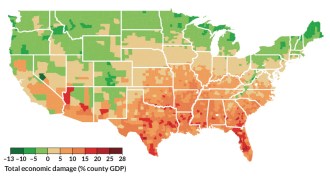 Climate
ClimateClimate change could exacerbate economic inequalities in the U.S.
Counties across the United States won’t all pay the same price for climate change, a new simulation predicts.
-
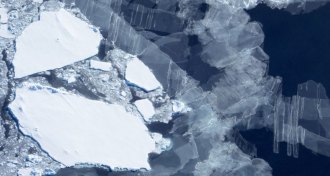 Earth
EarthBattering storms caused Antarctic sea ice to shrink at record pace
Unusually intense storms could explain why Antarctic sea ice shrank to its smallest observed extent this year.
-
 Chemistry
ChemistryEvery breath you take contains a molecule of history
In 'Caesar’s Last Breath', best-selling author Sam Kean tells vivid stories about the gases we can’t see.
-
 Environment
EnvironmentNew material could filter water contaminants that others miss
A new polymer offers a better way to pull fluorine-containing pollutants out of drinking water.
-
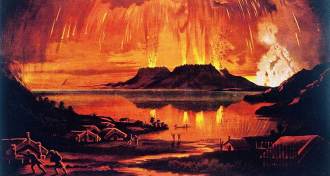 Earth
EarthMagma stored under volcanoes is mostly solid
Ancient zircon crystals provide clues about the magma that fuels volcanic eruptions.
-
 Climate
ClimateReaders question climate’s freshwater effects
Warming lakes, windmills for the Arctic, mosquito control and more in reader feedback.
-
 Climate
ClimateClimate change might help pests resist corn’s genetic weapon
Rising temperatures may allow pests to eat corn that is genetically modified to produce an insect-killing toxin.
By Susan Milius -
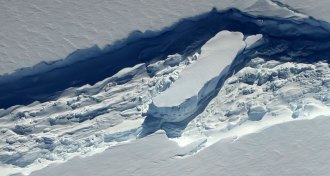 Earth
EarthAntarctica’s Larsen C ice shelf is within days of completely cracking
The crack in Antarctica’s Larsen C ice shelf grew another 17 kilometers between May 25 and May 31, 2017 and is at risk of breaking off a massive iceberg.
-
 Climate
ClimateU.S. will withdraw from climate pact, Trump announces
President Trump announced June 1 that the United States will withdraw from the Paris climate accord.
-
 Particle Physics
Particle PhysicsReaders puzzled by proton’s properties
Readers sent feedback on under-ice greenhouses in the Arctic, the Martian atmosphere and more.
-
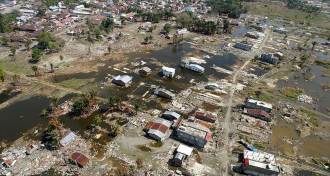 Earth
EarthDeep heat may have spawned one of the world’s deadliest tsunamis
The 2004 Indonesian quake was surprisingly strong because of dried-out, brittle minerals far below.
-
 Environment
EnvironmentWhen it’s hot, plants become a surprisingly large source of air pollution
During a heat wave, trees and shrubs can sharply raise ozone levels, a new study shows.